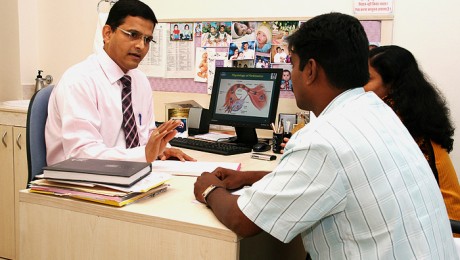
Preconception counseling involves meeting with a doctor who is experienced in this specialty, before pregnancy and consists of an assessment of the health of both potential parents.
It provides an opportunity to inform women about fertility or pregnancy issues, identify some of risks of pregnancy for mother and fetus, and educate them about these risks and institute appropriate interventions before conception.
Optimizing the health of the mother before conception is important for improving pregnancy outcome. Several aims of Preconceptional Counselling are-
Ideally, all women should go for Preconceptional Counselling. However, it must be offered for reasons like-
Warfarin is associated with an increased risk of birth defects and hemorrhage in pregnancy if at all, women should stop or change the treatment before pregnancy.
Most of the oral antiepileptic drugs are harmful to the baby, so medication should be changed to safer ones before pregnancy.
All women should have their antibody titers measured. If IgG is positive means woman is immune to rubella no further vaccination is required. However, if she is non-immune meaning IgG is negative she should be given the vaccination against rubella. Vaccinated women are advised to avoid pregnancy for four weeks after vaccination. Rubella can cause serious and lethal abnormalities in the baby.
Obesity reduces the fertility potential in women. Weight loss improves their ovulation and chances of becoming pregnant.
stress relief in many ways like exercise, change of job can be helpful in conception.
A couple should know about the fertile period when chances of conception are maximum.